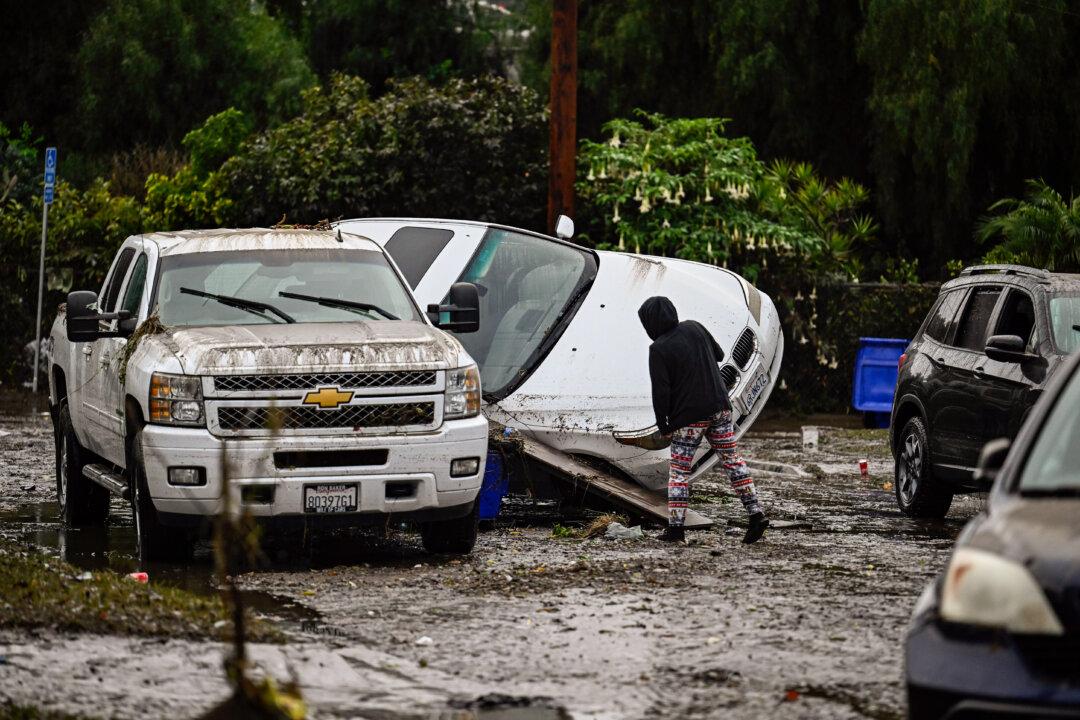President Biden approved California’s request for a major disaster declaration April 14 to help recovery efforts after early February winter storms caused flooding and mudslides across the state.
Biden’s OK on California’s Disaster Request Means Money Is on the Way
To help the state recover from winter storms, the federal government will provide funds and tax relief.

A woman examines cars damaged from floods during a storm in San Diego, Calif., on Jan. 22, 2024. Denis Poroy/AP Photo




